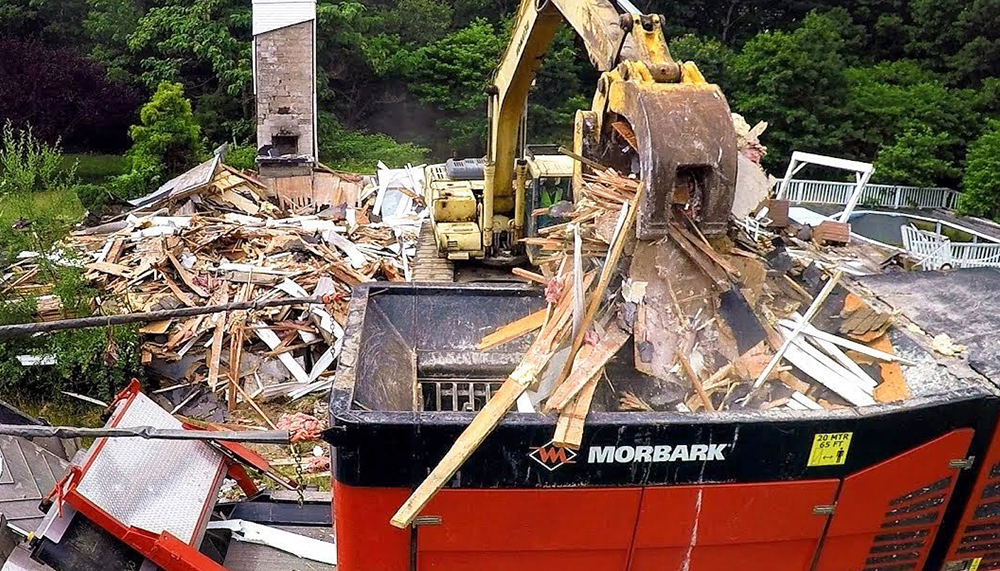Proper Construction Waste Management Processes
 In debris-heavy industries like many that our readers are in, it’s important to implement proper processes and procedures to ensure the safety of the crew and building residents. When working in construction and demolition, these projects can produce up to twice the amount of solid waste that municipalities do. Here are some tips and suggestions to reduce waste and make the worksite cleaner and more safe.
In debris-heavy industries like many that our readers are in, it’s important to implement proper processes and procedures to ensure the safety of the crew and building residents. When working in construction and demolition, these projects can produce up to twice the amount of solid waste that municipalities do. Here are some tips and suggestions to reduce waste and make the worksite cleaner and more safe.
Reduce as Much Waste as Possible
Any activities that reduce the total amount of waste generated will be beneficial to your project, and your bottom line. For example, rather than demolishing a building, if the building can simply be repurposed, that will drastically reduce the amount of debris created. Another option is to use construction materials that can reused and/or reassembled. For example, there are modular metal systems that can be used in place of lumber to shape concrete that can be used over and over again. Construction companies can also talk with their suppliers to receive the exact amount of materials that they need and no more. This will reduce materials costs as well as reduce the amount of total debris at the site.
Deconstruction instead of Demolition
Rather than demolishing a building, explore deconstructing the building instead. The difference is that during a deconstruction certain aspects of the building can be reused, while during a building demolition, the entire building is turned into waste. After a demolition you would then need to hire a waste management company to get your dumpster rental in Lakeland, FL, for example, to haul away all the debris. During a deconstruction, parts of the building are carefully removed to be reused or recycled. While this process takes longer than a simple demolition, the benefit is that it conserves materials that can be used in future projects. Doors and windows are great items to remove, as they can easily be installed in other locations if they are in good condition.
Recycle Your Refuse
Recycling is one of the best known was of reducing waste, and for good reason. Recycling can drastically reduce the amount of waste generated from a construction project. Concrete, asphalt, and rubble can all be recycled and be used again in future projects. Wood can also be broken down to create mulch, compost, and plywood. Metals such as brass, copper, and steel, can usually be recycled as well. Hire a proper waste management company at the beginning of your project so they can advise you on the best strategies for separating your materials.
We hope that you are now armed with a few pieces of advice to reduce construction waste and create a cleaner, safer job site. Feel free to let us know if you have any questions or comments.
 Many growing businesses often try so hard to get new clients and customers, that once they actually do, they are overwhelmed by their success. “Be careful what you wish for,” as the old adage goes. Nevertheless, getting more business than you can handle is a good problem to have, especially in this day and age. Rather than taking a reactive approach to your business problems, a targeted rollout will more effectively allow you to ramp up to satisfy your burgeoning demand. Specifically, utilizing emerging technologies such as robotics and automation will take the workload off your team, allowing you to ramp up your services. Utilizing robotic process automation will also reduce the amount of manual errors and human mistakes that are sure to occur when people are overworked, and even when they are functioning normally.
Many growing businesses often try so hard to get new clients and customers, that once they actually do, they are overwhelmed by their success. “Be careful what you wish for,” as the old adage goes. Nevertheless, getting more business than you can handle is a good problem to have, especially in this day and age. Rather than taking a reactive approach to your business problems, a targeted rollout will more effectively allow you to ramp up to satisfy your burgeoning demand. Specifically, utilizing emerging technologies such as robotics and automation will take the workload off your team, allowing you to ramp up your services. Utilizing robotic process automation will also reduce the amount of manual errors and human mistakes that are sure to occur when people are overworked, and even when they are functioning normally.